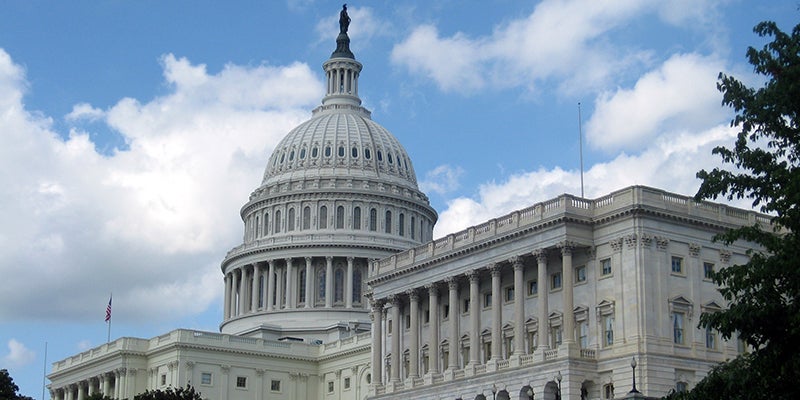
Five Questions with Casey Burgat
In our “Five Questions” feature we ask scholars, activists, and public officials five short questions about their work (and other things).
Dr. Burgat is the director of the Legislative Affairs program at the Graduate School of Political Management at the George Washington University. Previously, Dr. Burgat was a Senior Governance Fellow at the R Street Institute where his research focused on issues of congressional capacity and reform. In this role, Casey wrote regularly for both scholarly and journalistic publications, including CNN, the Washington Post, Politico, and appeared on a variety of television and radio outlets. Dr. Burgat is currently finishing a co-authored book on congressional policy procedures and strategies to be published by the University of Michigan Press.
You direct the Legislative Affairs Program at George Washington University. What does “legislative affairs” mean?
Legislative affairs is a catch-all phrase for anything and everything that relates to policymaking. It incorporates the legislature, including members and their staffs, all of Congress’ internal procedures, and outside-Congress actors such as the president, executive branch agencies, the courts, and the bevy of special interest groups, lobbyists and consultants. To study Legislative Affairs is to study how Congress makes laws (or not!).

Why do congresspeople need “staffers?”
Members of Congress have more to do than time to do it. From legislating to serving on committees to constituent casework, there is not enough time or brainpower for each member to do all of the work required of his or her position. So, in order to help them be prepared, advance policies, and respond to the needs of their constituents, they hire staffers to work in their name on all of these tasks and more.
What do staffers do?
Congressional aides assist the member in doing nearly every task expected of them outside of taking votes. Schedulers manage the member’s schedule. Administrative assistants help run the office, field phone calls, and work the front desks of the lawmaker’s DC and district offices. Legislative staffers research policy options, write bills, and meet with interested stakeholders to discuss policy specifics. Communications staffers work to get the word out to constituents and local and national media about the work done by the lawmaker. Staffers working in the district field casework requests and assist constituents in navigating the federal bureaucracy. They all play specific and important roles in helping the member carry out their many varied duties.
The system seems strange…as voters, we don’t elect staffers, but it seems like they’re helping make a lot of decisions. Is this a good system?
Staff have often been labeled ‘unelected representatives’ because they aren’t on any ballot but do a lot of the behind-the-scenes work that influences many decisions of the actual lawmakers. But, there is a widespread understanding that all staffers work on behalf and in support of the member whose name is on the door. They don’t take actions in the member’s name without clear authority from the member. If they do, they don’t last long. Having staff conduct a lot of the work in support of their members is necessary and allows for their constituents to communicate directly with legislators. They are our conduits to Congress and our representatives. Plus, just like in most private-sector organizations, employees make the company more efficient and effective; the same is true for congressional staffers and lawmaker offices.
If you could change one thing about the legislative affairs system, what would it be?
Only one??? One of the best returns on our tax-payer investment would be to increase the funding levels so we could pay congressional staffers more. Their pay has been flat for over a decade in one of the most expensive cities in the country. This has created a host of negative consequences including: a minimally diverse cohort of staffers; short tenures spent in Congress because they realize they can make more in the private sector; increased influence of special interest groups, most of whom come with partisan leanings; and much of the work of our national legislature being conducted by staffers in their 20’s. Paying staff more means we could recruit and retain the best and the brightest as well as offer starting salaries that do more than barely pay the rent, which would result in a diverse staff that more resembles the country.
Listen to an Interview with Casey Burgat on Big Tent Radio
On this episode of The Big Tent, Charlie and Luke are joined by Dr. Casey Burgat, Assistant Professor and Director of Legislative Affairs at George Washington University to discuss all things congressional. Originally aired August 06, 2020.
The Big Tent is a Public Affairs radio show hosted by School of Public Service faculty Jen Schneider, Luke Fowler, Jaci Kettler and Charlie Hunt. It is produced by Valerie Hayes.
Listen Thursdays at 3:30 on RadioBoise 93.5 FM.